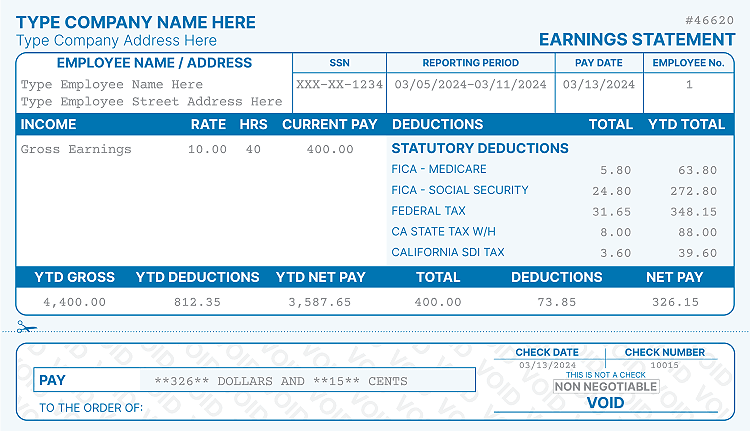Is Unearned Revenue a Liability and How’s the Calculation Made
Whenever revenue is received by a company but not yet earned, the term unearned revenue or unearned income will apply.
In other words, the revenue is received in advance of service or product provision.
Without an exception, unearned revenue has to be recorded as a liability.
Both companies and individual service providers may have to deal with unearned revenue over the course of their operations.
Depending on the arrangements between the company and the client, the product or service will have to be delivered later on. The provision of advanced payment is guided by a contractual obligation between the two entities.
Without an exception, unearned revenue is a liability that’s equal to the income amount. This applies until the product or service is delivered to the recipient. As the liability is expected to be settled in the near future, it has to be entered under current liabilities.
What’s Unearned Income: Highlights
So, to sum things up:
- Unearned revenue is a common phenomenon among those requiring a prepayment for their services
- It can also occur often whenever a company provides subscription-based solutions to its clients
- Without an exception, unearned revenue is a liability
- As the company earns the revenue through service provision, it reduces the debit balance and increases the credit balance
- Because it is expected to be settled in the near future, unearned income is entered under current liabilities
Note: Unearned revenue is not the same thing as current assets. As per accounting terminology, current assets refer to receivable funds that the company will get within one year. Unlike unearned revenue, current assets hold no contract and are only linked to a receipt or an invoice. This is a transactional sum and the funds are exchanged for service or product provision.
Industries That Often Handle Unearned Revenue
Unearned revenue is more likely to happen for businesses that operate in certain fields due to the nature of products or services being delivered to clients.
Here are some of the industries that often involve unearned revenue payments:
- Software as a service (service provision is often monthly and subscription-based)
- Real estate (rental payments)
- Event planning and ticketing
- Media publishing (subscription-based payments)
- Construction
- Travel
- Insurance (prepaid insurance premiums)
- Ecommerce
- Transportation and logistics
How to Calculate Unearned Revenue: Accrual vs. Cash Accounting

The way in which unearned income will be calculated depends on whether you’re using accrual or cash-based accounting.
Unearned Revenue Under Accrual Accounting
A company isn’t allowed to recognize income in its accounting until the provision of a product or a service. That’s a guiding accounting principle known as the revenue recognition principle.
In the event of accrual accounting, unearned income is recorded under deferred revenue within the balance sheet.
After the provision of the product or the service, the amount is recorded under revenue because that’s the point in time when it becomes earned.
Highlight: under accrual accounting principles, revenue has to be recognized whenever it has been earned and not when the money’s received.
Unearned Revenue Under Cash Accounting
As you’ve probably guessed already, this accounting principle has revenue being recorded whenever a sum is received by the entity and not when a service has been provided.
Usually, the cash accounting method is only used by small businesses and sole proprietors. Most bigger operations rely on accrual accounting and the Generally Accepted Accounting Principles (GAAP).
Highlight: In cash accounting, revenue is recognized as soon as it is received. As a result, the term “unearned revenue” does not exist under cash accounting. Once a company gets paid (regardless of service provision), the amount is entered in an income statement immediately.
How’s Unearned Revenue as a Liability Recorded
In this section, we’ll take a deeper look at how unearned income is recorded under the accrual accounting principle.
Unearned revenue always has to be entered in the company’s balance sheets and it figures under liabilities.
The income is treated as a liability because it has not been earned yet. Eventually, the sum will be recognized as income within the balance sheet whenever product or service provision occurs (hence, the entity earns the money).
Unearned revenue is not recorded within an income statement.
Here’s a simple example to illustrate the appearance of a balance sheet that contains information about unearned income. Imagine that a company receives 5,000-dollars for a B2B subscription-based solution that the client hasn’t started using yet. In the balance sheet, the information about this payment is going to be entered as follows:
|
ACCOUNTS |
DEBIT |
CREDIT |
|
Cash |
$5,000 |
|
|
Unearned Revenue (liability) |
|
$5,000 |
Whenever the client starts making use of their subscription, the balance sheet information will change as follows:
|
ACCOUNTS |
DEBIT |
CREDIT |
|
Unearned Revenue (liability) |
$5,000 |
|
|
Cash |
|
$5,000 |
This is also the time when the information about the revenue can be entered in the income statement, as well.
When it comes to revenue recognition, a very specific set of criteria has been put together by the US Securities and Exchange Commission (SEC). When in doubt, review those guidelines to get more clarity on balance sheet and income statement specifics.
When Is Unearned Revenue Recognized
Unearned revenue is only recognized whenever a company has a contract with a client that necessitates the provision of a certain product or service. The contract also has to highlight whether the obligation is subscription-based and if the client has to make advance payments.
Here are a few examples of payments that will be recognized as unearned revenue:
- Advance subscription payments (like your Netflix payment, for example)
- Computer software update payments (usually paid monthly or annually and before the update itself takes place)
- Rental payments
- Prepaid insurance
- Magazine and newspaper subscriptions
- Airline, train, bus ticket purchases
- Construction prepayments
Where is unearned revenue on the balance sheet?

Unearned revenue is reported on the balance sheet's liabilities. Because the corporation collects cash payments in advance, they have unfulfilled responsibilities to their clients. Because the transaction is incomplete, unearned income is shown as a liability on the balance sheet.
Can unearned revenue be an asset?
No. Unearned revenue cannot be considered an asset. Unearned income is money a company receives from a client before the delivery of an item or service. Unearned income is reported on a balance sheet as a debit to the cash account and a credit to the unearned revenue account.
Unearned revenue, also known as deferred revenue, is reflected as a liability on a balance sheet and must be recovered by successfully delivering a product or service to the client.
To summarize, unearned income is an asset the firm obtains with a counter obligation of service to be performed or commodities to be provided for it to be earned entirely.
This task requires time and money that the company will invest. And this is a piece of information that must be revealed to complete the picture of the financial condition at the time.
Is unearned revenue a credit or debit?
Unearned revenue is first recorded as a debit to the cash account and a credit to the unearned revenue account in the books. As is customary in double-entry bookkeeping, the credit and debit are the same amount. Furthermore, every transaction is always recorded in two accounts.
Unearned income is it cash or accrual?
Unearned income is accrual. Unearned income is payment received by a company for products or services that have yet to be delivered. Until the contract is executed, it is reflected as a liability on the company's balance sheet. Unearned revenue can be accumulated in a variety of ways. Consider a one-year gym subscription.
Unearned Revenue Reporting Requirements
A public corporation must fulfill various requirements imposed by the Securities and Exchange Commission (SEC) to generate revenue. If these conditions are not satisfied, revenue recognition is delayed.
The SEC requires collection likelihood or the capacity to establish a reliable approximation of an amount for the provision for doubtful accounts, completed delivery or ownership moved to the buyer, compelling proof of an agreement, and a fixed price.
Kristen Larson is a payroll specialist with over 10 years of experience in the field. She received her Bachelor's degree in Business Administration from the University of Minnesota. Kristen has dedicated her career to helping organizations effectively manage their payroll processes with Real Check Stubs.

